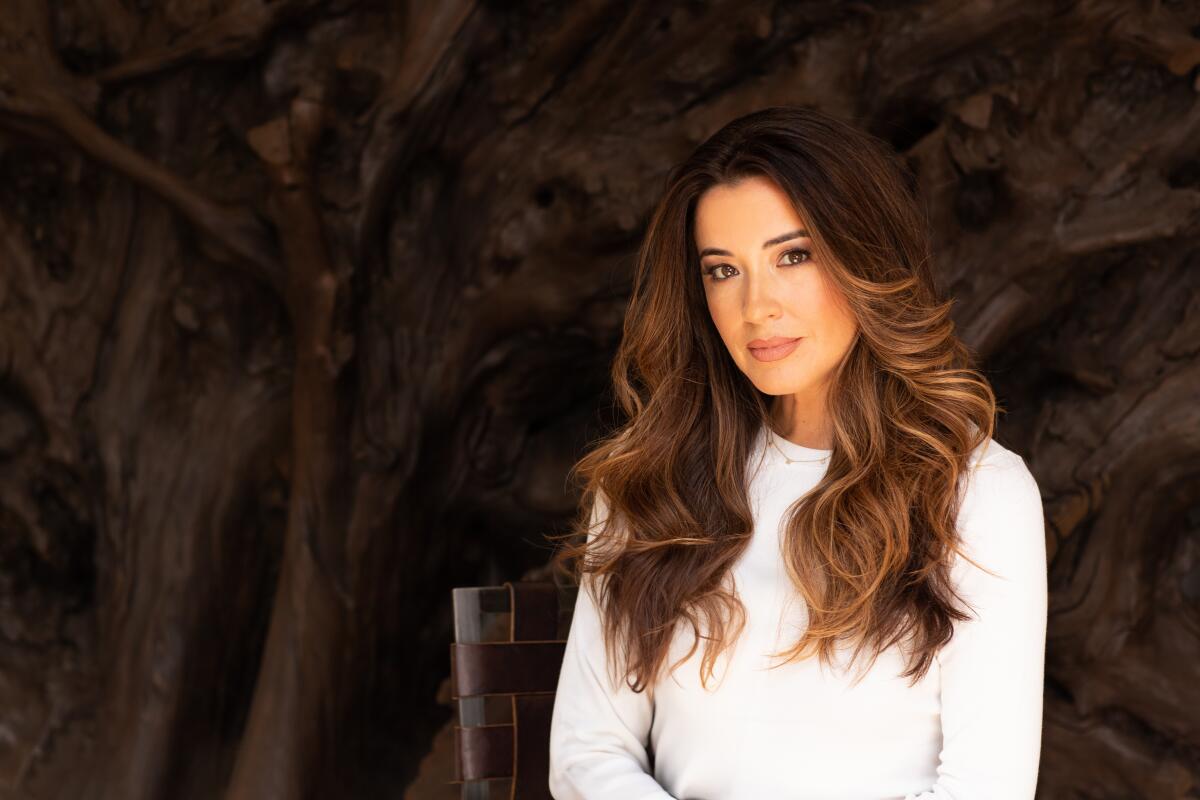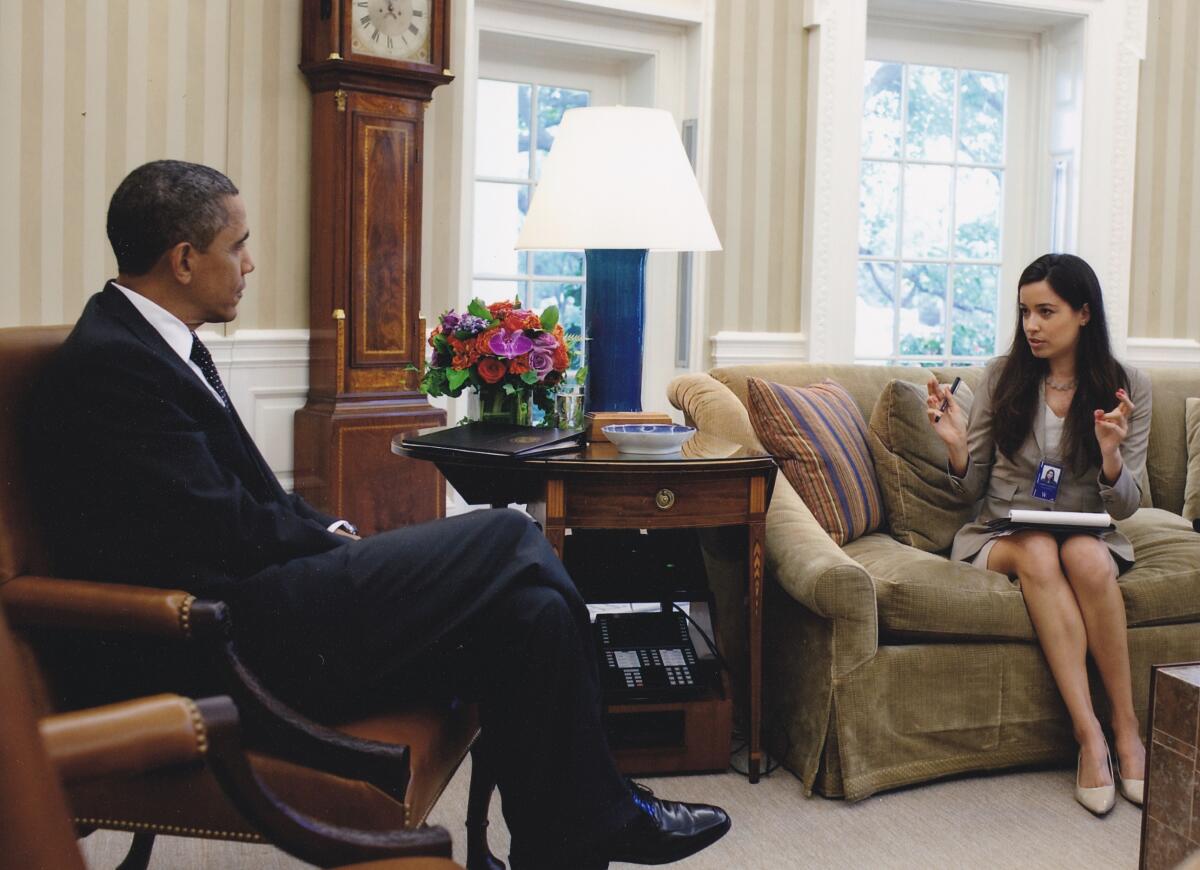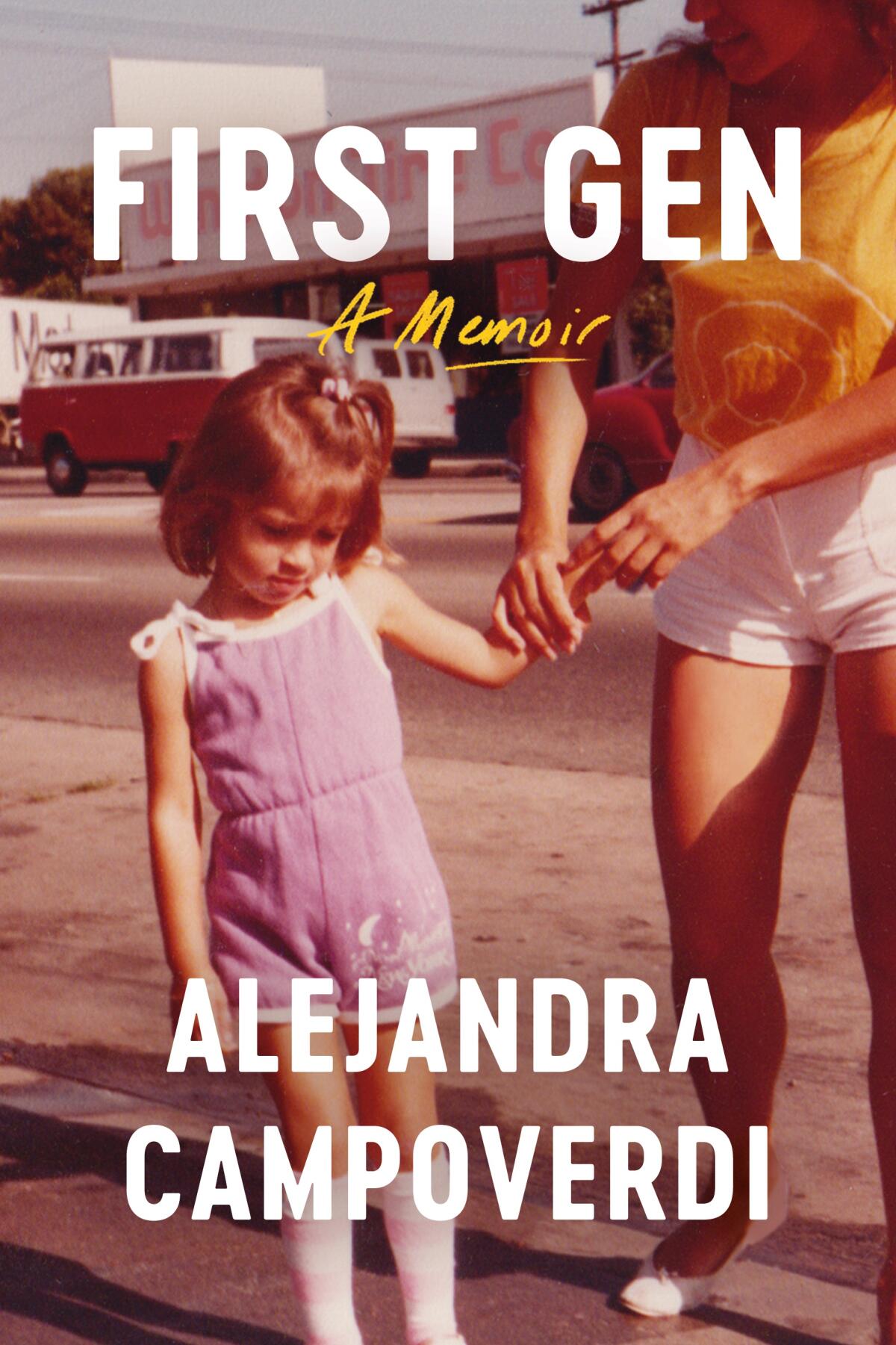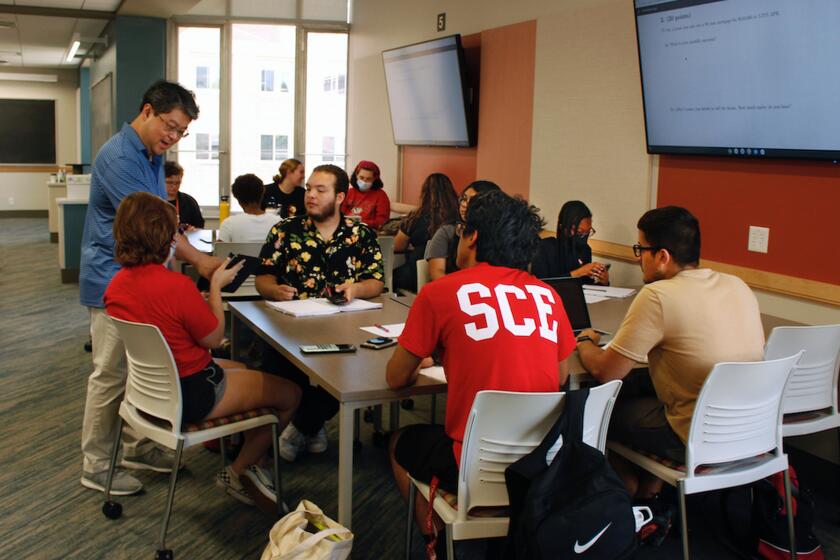What’s the ‘Trailblazer Toll’? A former White House aide on the costs of being ‘first’

- Share via
On the Shelf
First Gen: A Memoir
By Alejandra Campoverdi
Grand Central: 288 pages, $28
If you buy books linked on our site, The Times may earn a commission from Bookshop.org, whose fees support independent bookstores.
Alejandra Campoverdi’s new memoir, “First Gen,” is more than the story of her remarkable journey from a child on welfare in Los Angeles to a White House aide.
It’s also a powerful resource for first-generation students who are navigating college during this period of political and economic uncertainty. The book explores some of the common experiences of these young people, who are more likely than the average student to be from low-income families and to be people of color.
“As First and Onlys, we have dual citizenship to worlds that often appear at odds with each other,” she writes. “We often walk multiple tightropes at the same time, with little attention given to how this dynamic affects our mental health.”
In emotionally raw and poignant scenes interwoven with useful reflections, Campoverdi explores the toll of this tension on her own psyche, including her experiences with panic disorder while working multiple jobs as a student at USC and later Harvard University.
An activist surveyed the students and found a mental health crisis fueled by financial fears and loneliness.
I talked with Campoverdi, who once worked at The Times, about her book at USC, which I also attended as an undergrad. “Getting here was completely disorienting,” she recalled. We walked past the iconic Tommy Trojan statue, where she fainted during freshman orientation while having a panic attack. “I literally passed out right there,” she said.
She explained why she chose to share some of her most difficult moments: “The stories we think are shameful are the ones that are most connective.”
Ahead of our forthcoming Sept. 28 discussion of her book at the Los Angeles Central Library, we had a conversation about her experience and the “trailblazer toll.” This Q&A has been edited for length and clarity.

The most powerful moments of your book were the darker ones, involving mental health struggles and powerful men who sought to humiliate you. Some may argue that it’s deflating to focus on the worst aspects of the first-gen experience. Why did you decide to lean into the hardship?
You get to a point — a beautiful point as a woman, as a person, as a human — where you feel like you don’t have anything left to prove anymore. That’s especially resonant for first-generation young people, who often spend a lot of their time proving they belong. I came out of the other side of the sausage maker, in a lot of ways, with bullet points on my résumé that looked really tidy. I would hear people talk about my background: ‘She went to USC, and then she went to Harvard, then she went to the White House, then she ran for Congress.’ All the truth was scrubbed out of it. And I felt like it was in a lot of ways misleading of the truth of what it really takes to be the first person in your family to cross a number of thresholds.
All of our lives are complicated. All of our lives are twisty. We all make mistakes. None of us have it figured out. That’s beautiful. I don’t want credit for having it all figured out. I’d rather have a real conversation about how we can make it better for the next generation.
You identify what you describe as the “Trailblazer Toll.” You explore different aspects: impostor syndrome, isolation and parentification, “the tendency of First and Onlys to take on the role of an adult — serving as the family translator, doctor, go-between, form filler, dictionary, or psychologist.” What made you decide to dissect the first-gen experience this way?
I personally have long questioned how impostor syndrome is put at center stage. On top of everything first-gen young people are doing, the onus kinda goes back on them to be more confident. Part of what I wanted to do was normalize the experience as comprehensive and layered and nuanced and long. How we interact with it, intentionally or not, is a big part of the journey. A big part of writing the book for me was validating my own experience. You can’t heal from that which you can’t name.

Your book is not only about your first-gen experience. It’s also very much about the strength of the women who came before you. You delve into the traumas and challenges your mother and abuelita experienced in their early lives. Why did you decide to center their complex stories as well?
A lot of the gifts [our families] give us don’t come in the neatest packages. Like my independence, and my resourcefulness, came from the fact that my mom didn’t have a lot of bandwidth when I was in my adolescence. She was raising a newborn as a single mother, dealing with her own marriage crumbling. We all carry different levels of pain or sadness or even at times resentment around why we didn’t get the things we felt we needed.
I’ll speak for myself: I got to a point where you understand that there is the good intertwined with the hard. And you can appreciate what people were capable of giving you and how they were able to show up. [They] taught me so much. When I handed the book to my mom, I felt honored. … I feel honored that my grandmother’s photo is in there. You honor your family when you tell their stories. You honor your family when you live well and you find peace for yourself.
Beyond writing the book, you’re also giving away scholarships to first-gen students and commissioned a survey to better understand their needs. What motivates you to advocate for this community?
When we’re talking about wealth and inequality in this country — you have your first-gen community who are literally the standard-bearers of social mobility and the American dream. Supporting this population is critical. There are few better ways to affect what our future workforce in the country looks like than when you look at this demographic.
Jean Guerrero, author of “Hatemonger,” talks about the making of Stephen Miller, who helped make Trump president, then remade the U.S. immigration system.
Near the end of your book, you write about learning to “celebrate who we are versus what we’ve accomplished.” That struck a chord for me as someone who used to define myself by my professional achievements, and who felt disproportionate anxiety about it.
We often feel we are responsible for figuring out how to bridge these different parts of ourselves, different communities, different social classes, different ethnicities — so much. We’re responsible for it. And it feels impossible. I remember a young person asked me once, when I was speaking at a school, “How do I bridge these parts of me? How do I do that? I’m at a loss.” And she was actually crying. I told her, you don’t have to figure out how to do it, because you’re already the bridge. You exist as a bridge. What you need to do is exist to your fullest capacity. As unapologetically as you can. That’s all you have to do.
More to Read
Sign up for our Book Club newsletter
Get the latest news, events and more from the Los Angeles Times Book Club, and help us get L.A. reading and talking.
You may occasionally receive promotional content from the Los Angeles Times.










